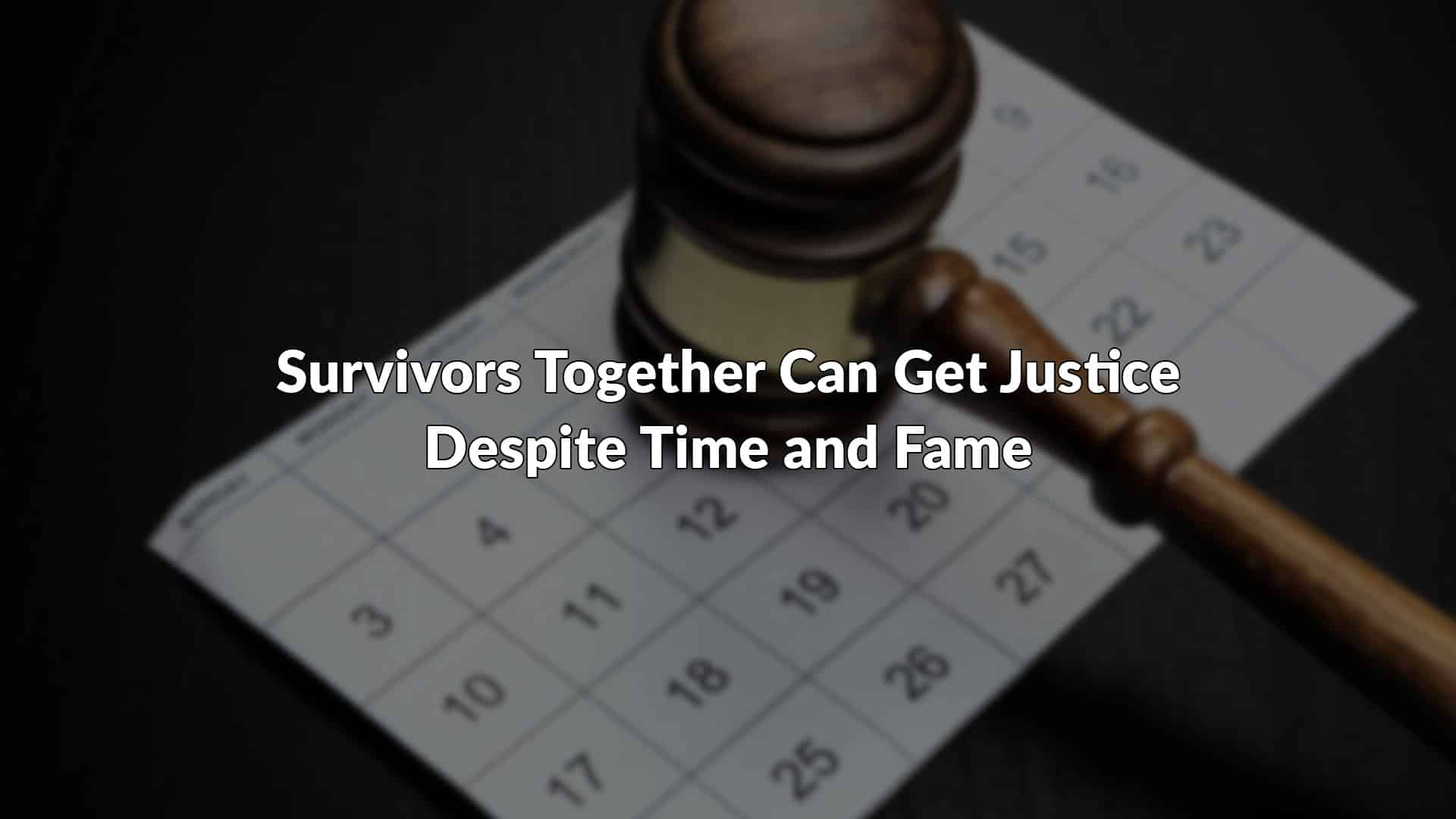In its 2018 request for proposals for specialized and comprehensive services by government agencies and nonprofits, the Justice Department reversed course on allowing part of $77 million in federal funding to be used for vacating and expunging criminal records of human trafficking survivors.
The change is in stark contrast to prior years when grantees – including governmental, law enforcement and nonprofit organizations – could use federal dollars to help human trafficking survivors with post-conviction relief to expunge criminal records from when they were being trafficked.
This week, service providers, legal organizations, law enforcement officials and survivors gathered signatures to send letters to the Office for Victims of Crime asking it to restore the previous funding model.
Four letters are being prepared: one by legal service providers and other organizations providing victims services; one by law enforcement officials and prosecutors; one by trafficking survivors; and another that will be circulated among congressional representatives who approved this year’s fiscal package for funding for crime victims.
So far, over 75 individuals and organizations have signed on, in addition to over 100 survivors.
Without post-conviction relief, many individuals and organizations who work with human trafficking survivors – particularly those with prostitution, solicitation and drug charges – say their clients cannot take advantage of other services provided by federal funding so long as they have a criminal record.
Stacie Reimer, executive director of Amara Legal Center, a pro bono legal provider for sex trafficking victims, said her group receives specific funding from the Office for Victims of Crimes to do expungement work. She said they have a three-year grant which could be axed based on the new exclusions in the funding applications.
Reimer said about 95 percent of their clients have some criminal record. While not all are eligible for expungement under different state laws, they screen everyone to see if they qualify for relief.
She said a criminal record “impacts all areas of your life,” noting those with criminal convictions have a difficult time securing housing, employment and schooling.
Reimer said one of her clients wasn’t allowed to be a chaperone for her daughter’s school field trip after the school performed a background check that turned up criminal convictions from when she was trafficked.
“The bigger issue is the message it sends to survivors of human trafficking. The government is saying even though you were wrongfully convicted that you don’t deserve relief,” Reimer said.
While Reimer hopes the agency reinstates the previous criteria allowing funding for post-conviction relief, she said her organization plans to use other funding streams from private foundations and individuals to continue doing expungement work.
Jean Bruggeman, executive director of the Freedom Network, a national alliance of organizations and people who advocate for trafficking survivors, said the Office for Victims of Crimes has a strategic plan called Vision 21 which specifically calls for expanding legal services for survivors.
“What we know about trafficking victims is they are forced to commit crimes as part of the trafficking and end up with extensive crime records,” Bruggeman said.
“If we really want crime victims to overcome victimization and fully recover from its effects then we have to make sure we provide them resources to do that,” she added.
She said since the change to trafficking-survivors funding is a policy change and not a law it can be quickly reversed before applications for funding are due at the end of June.
Federal funding has typically excluded using dollars for criminal defense of trafficking victims. But even though vacatur and expungement are done through criminal court, it does not fall under the criminal defense umbrella, Bruggeman said.
“Post-conviction relief is really to correct an error in the administration of justice. It’s a very different use of funds than criminal representation,” Bruggeman said.
“For post-conviction, there is no right to counsel. Everyone understood that distinction, so it made sense to allow the grant funds to be used for post-conviction matters because they’re quite different.”
She said convictions for crimes a trafficked person was forced to commit causes “long-term harm” to survivors.
“I can’t even fathom why anyone wouldn’t want to fix that mistake. Everyone in the justice system is in the business to seek justice,” Bruggeman said.
It’s also “highly inefficient,” Bruggeman said, to restrict allowable legal services funded by federal dollars when human trafficking is a specialized field for which attorneys need extensive training to be able to represent their clients.
“I can only hope it was a misinformed decision, but I fear it is part of this administration’s failure to understand or be concerned about the real lives of women, people of color and immigrants, and how their lives are affected by crime,” Bruggeman said.
“What it does is make people more vulnerable to crime. Turn back to underground economy.”
Nat Paul, policy advocacy chair of the National Survivors Network, is coordinating the response from survivors.
She said a survey conducted by the network of its members found over 90 percent of survivors had been arrested. Only seven of 130 respondents reported they had never been arrested.
Paul said that figure shows why post-conviction relief is “absolutely necessary.”
“It’s something survivors are adamant about. They have to have a process to remove convictions in order to have access to jobs and housing,” Paul said.
“By refusing to accept you can’t arrest the problem away, make mistakes in identification, assume arrests are correct, you perpetuate the same cycle and vulnerabilities. If we’re condemning people who were victims forced to do a crime in first place, how will we able to expect them to integrate back into society?” Paul added.
Human trafficking advocates expect to submit their letters calling on the Office for Victims of Crimes to reverse its exclusion of vacatur and expungement legal services by June 4.
Kara McCarthy with the Office for Victims of Crimes was unable to respond with comment by press time.
Original Source: https://www.courthousenews.com/justice-department-blocks-funds-for-legal-help-of-trafficking-victims/



